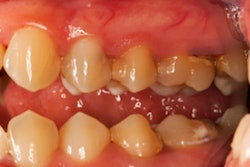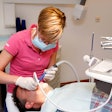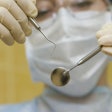
Low general intelligence scores on cognitive performance tests were associated with worse dental status, specifically more decayed teeth, in young to middle-aged adults in a recent study. The findings were published on February 28 in Biology.
Individuals in the lowest category of intelligence were five times more likely to have decayed teeth than those in the highest category. The link between cognitive performance and caries was independent of the sociodemographic and health-related habits analyzed, according to the study authors.
"Better allocation of resources is recommended, focusing on populations with impaired cognitive performance in need of dental care," wrote the group, led by Dr. Itzhak Abramovitz from the endodontics department at Hebrew University Hadassah School of Dental Medicine in Jerusalem.
Evidence has shown people with higher intelligence quotient (IQ) scores often live longer, enjoy better health, and have lower odds of self-reported severe tooth or gum problems. Prior studies have addressed cognitive function and dental status among children, but few have examined the association in young to middle-aged adults, the authors noted.
Abramovitz and colleagues analyzed data from the record-based Dental, Oral, Medical Epidemiological (DOME) study, which includes sociodemographic, dental, and medical information for young to middle-aged military personnel in Israel. In the military, intelligence scores are routinely tallied from cognitive function tests that draftees typically take at age 17.
Data for 131,927 personnel between the ages of 18 and 50 who attended dental clinics between 2015 and 2016 were analyzed to explore the associations between intelligence tests and dental status, while controlling for sociodemographic variables and health-related habits.
The researchers found a correlation between cognitive performance and oral health, as measured in several different categories.
| Correlation of intelligence score with oral health status | ||
| Oral health measure | Lowest general intelligence score | Highest general intelligence score |
| No. of decayed teeth (mean) | 3.14 teeth | 1.45 teeth |
| No. of missing teeth (mean) | 0.63 teeth | 0.51 teeth |
| No. of teeth in need of root canal (mean) | 0.18 teeth | 0.04 teeth |
| No. of teeth in need of extraction (mean) | 0.22 teeth | 0.11 teeth |
The researchers found that individuals in the lowest category of intelligence score had an odds ratio of 5.36 for having decayed teeth, compared with those in the highest category of intelligence. What's more, 76% of participants who had at least one decayed tooth fell into the lowest general intelligence score category, compared with about 55% who scored in the highest category, the authors wrote.
The associations between general intelligence scores and decayed teeth persisted even after adjusting for sociodemographic factors, such as age and education, and health-related habits, such as smoking and toothbrushing at least once a day. The adjustments weakened the association but did not eliminate it, the group found (odds ratio for lowest vs. highest, 3.75).
Despite the large sample size, the study did focus on a very specific population, the authors noted. Military personnel access to healthcare possibly differs from that of the general population, they added. Also, some parameters were not addressed, including parental, childhood, and in utero exposure, and the cross-sectional design of the study did not allow for the exploration of causality.
Nonetheless, "impaired cognitive performance tests were positively associated with a distinct and consistent gradient, whereby dental parameter scores were highest in the lowest [general intelligence score] category and lowest in the highest," they concluded.




















